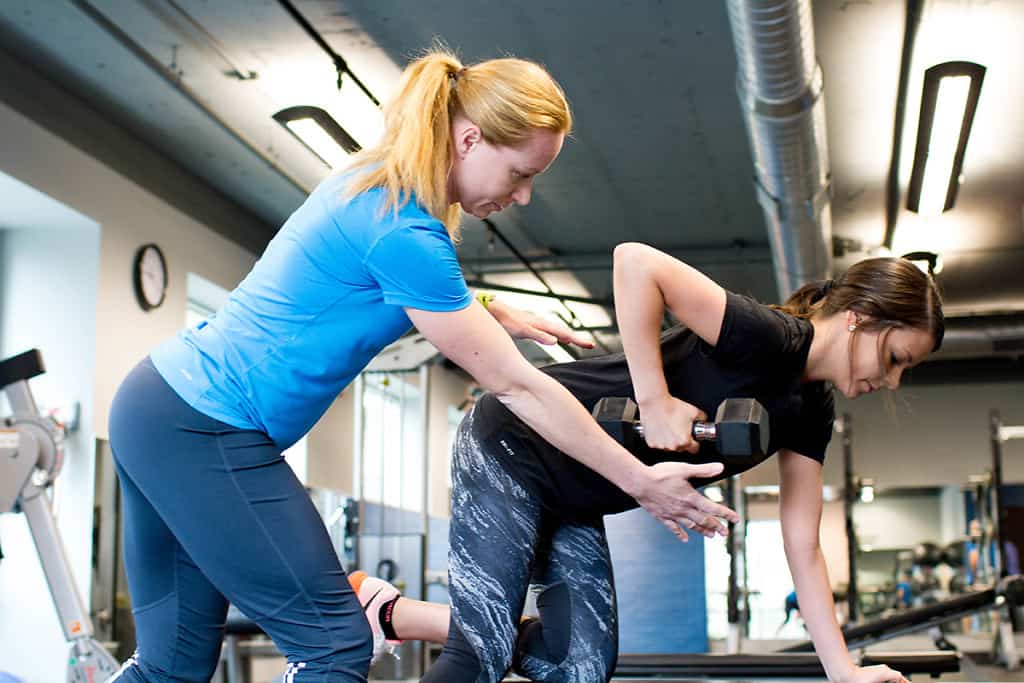
Just about anyone can call themselves a “personal trainer,” there is so little regulation in the training industry. So how can you make sure you’re working with a personal trainer you can trust with your health and well-being? The key is to ask questions. A good trainer will expect questions, and be willing to provide documentation if you ask for it.
When you’re trying to find a personal trainer, think and ask about his or her:
- Education
- Certification
- Insurance
- Experience
- Personality
What Fitness-Related Education Does Your Trainer Have?
Does the personal trainer you are considering have any form of higher learning in a related area? Degrees in a broad field such as biology or zoology show that the trainer you choose at least has a background in anatomy and physiology. A more specific degree in an area such as exercise science, exercise physiology, or kinesiology are even stronger indicators that this trainer knows their stuff when it comes to fitness.
Is Your Personal Trainer Certified with a Trusted Organization?
Is your trainer certified to provide personal training? More importantly, who issued the certification? In an unregulated industry, “certified” does not indicate expertise on its own so it’s important to find a personal trainer that carries a reputable certification.
Three of the most respected certifications in the industry are offered by:
- National Strength and Conditioning Association (NSCA)
- American College of Sports Medicine (ACSM)
- National Academy of Sports Medicine (NASM)
Other nationally recognized certifying agencies that you are likely to see are:
- American Council on Exercise (ACE)
- International Sports Sciences Association (ISSA)
- Aerobic and Fitness Association of America (AFAA)
Does Your Trainer Carry Liability Insurance?
Liability insurance not only protects against personal injury loss, but is a good indication that this trainer takes the fitness profession seriously. Here is a trade secret: Liability insurance is not expensive, so if the trainer you are considering does not have a policy, it’s best to find a different personal trainer.
Is Your Trainer CPR Certified?
Your trainer must be prepared for emergency situations. The training offered from CPR certification courses keeps personal trainers updated on life-saving measures that can be taken should the worst occur. Current CPR certification is a must-have for any professional that you trust your health to.
Does Your Trainer Have Relevant Experience?
How much experience does your trainer have working with clients that have similar needs as yours? Finding a personal trainer with this experience can be invaluable, but it might not be a deal-breaker. A lack of experience for your specific needs can be overcome by the willingness to put in the time to do some research to close the gap.
Is Your Trainer Willing to Admit When They Don’t Know?
Will your trainer take the time to research your questions? This may be one of the most underrated traits of a personal trainer, as misinformation and assumptions can lead to injury. One of the best (but seemingly hardest) things a trainer can do is simply tell you, “I don’t know, but by the next time I see you I will have the answer.”
Do You Like Your Personal Trainer?
When choosing a trainer, this seemingly obvious factor is often overlooked or minimized. When you met with your prospective personal trainer, did you feel comfortable? You will be spending a lot of time with this person in the weeks and months to follow. If you feel uncomfortable at all in his or her company, it’s best to find another trainer.
